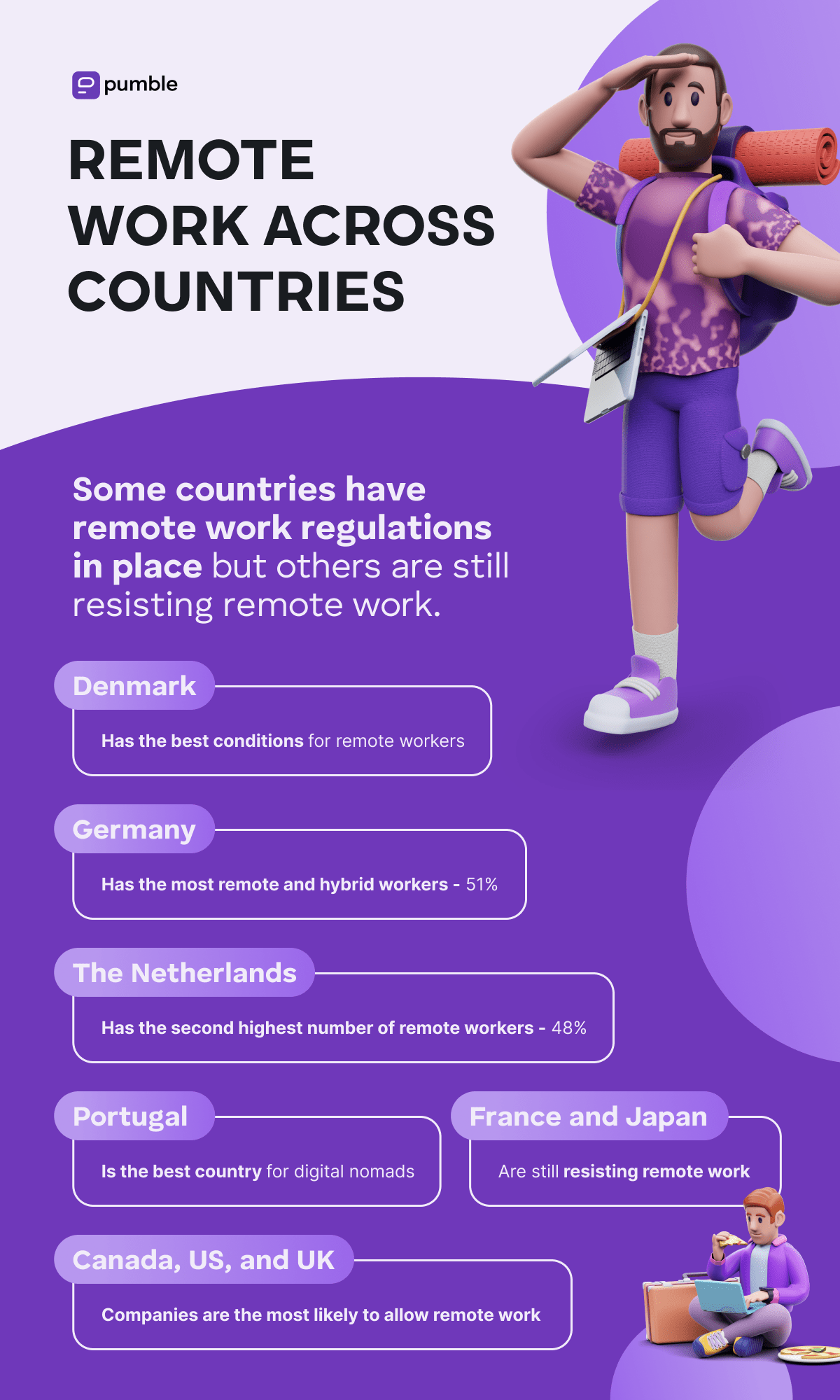Overview of Remote Work in Spain for 2025
Why Spain is Gaining Popularity as a Remote Work Destination
Spain has become a hotspot for remote workers. The country offers a sunny climate, vibrant culture, and a relatively low cost of living compared to other Western European nations.
Spain was even voted the second-best country in the world for remote workers, according to a 2022 study. It offers a perfect blend of work-life balance and affordable living costs.
Key Factors Influencing Remote Work in Spain
Several factors contribute to Spain's appeal. These include a strong digital infrastructure, a growing number of coworking spaces, and the introduction of a digital nomad visa.
The Spanish government is actively encouraging entrepreneurship and foreign investment. This makes it easier for remote workers to establish themselves in the country.
Cost of Living in Spain for Digital Nomads in 2025
Breakdown of Monthly Expenses
Living expenses in Spain are generally lower than in other parts of Europe. This makes it an attractive option for digital nomads looking to stretch their budgets.
You can enjoy a comfortable lifestyle for 20% - 40% less than your home country. Housing, food, and transportation are all relatively affordable, especially outside major cities.
Housing Costs in Major Cities
Housing costs vary depending on the city and location. A one-bedroom apartment in Madrid or Barcelona city center can range from $900 to $1,500 per month.
Prices outside these cities drop to around $700 to $1,200. Sharing with a roommate can further reduce costs to $500 to $800.
Food and Dining Expenses
Grocery prices in Spain are wallet-friendly. A single person may spend around $40-$50 per week on groceries.
Dining out is also affordable, with meals at inexpensive restaurants costing between $10-$15. A three-course meal for two at a mid-range restaurant ranges from $35-$50.
Transportation Costs
Public transportation in Spain is efficient and reasonably priced. A metro or bus ride in major cities averages around $1.50 per trip.
Monthly passes are available for $40-$60. This offers an economical travel solution for those looking to explore.
Comparison of Costs in Different Spanish Cities
| City | Rent (1-Bedroom, City Center) | Rent (1-Bedroom, Outside Center) | Meal (Inexpensive Restaurant) | Monthly Transport Pass |
|---|---|---|---|---|
| Madrid | $900 - $1,500 | $700 - $1,200 | $10 - $15 | $40 - $60 |
| Barcelona | $900 - $1,500 | $700 - $1,200 | $10 - $15 | $40 - $60 |
| Valencia | $600 - $1,000 | $500 - $800 | $10 - $15 | $40 - $60 |
| Seville | Moderate | Lower | $10 - $15 | $40 - $60 |
| Malaga | Moderate | Lower | $10 - $15 | $40 - $60 |
Barcelona tends to have higher living costs due to its Mediterranean allure. Madrid offers a balance between urbanity and affordability.
Valencia is known for its relaxed coastal vibe and budget-friendly living. Seville and Malaga offer a more moderate cost of living.
Remote Work Opportunities in Spain in 2025
Growing Industries and Job Markets
Spain's tech scene is vibrant, with startups looking for fresh talent. Opportunities exist in web development, data analysis, and DevOps.
The demand for talent is off the charts, especially in AI and cloud computing. Companies are looking for people who can do the work, opening doors for self-taught developers and bootcamp grads.
Key Skills and Professions in Demand
Expertise in AI, cybersecurity, and software development is highly sought after. By 2025, roles in AI, machine learning, and data science will be major growth areas.
English fluency is essential. German proficiency can unlock opportunities in Europe's largest tech market.
Notable Remote Work Platforms to Explore
Specialized remote job boards like WeWorkRemotely and Wellfound are game-changers for landing tech roles. Spain leads with 18% of job postings offering remote work, followed by the UK and Germany at around 15%.
Getting a Job in Tech in Spain in 2024: The Complete Guide provides more insights into the tech job market. Customize your resume for each role, show off your remote work skills, and highlight experience with collaboration tools.

Best Cities in Spain for Remote Workers in 2025
Overview of Major Urban Centers
Spain offers a variety of cities perfect for remote workers. Each city has its unique charm and advantages.
Major tech companies like Telefónica and Amadeus IT Group are setting the tone. Innovative start-ups often provide the best entry points for remote tech jobs.
Madrid: The Capital's Benefits
Madrid is a bustling metropolis with a thriving tech scene. It offers a high quality of life, excellent public transportation, and numerous coworking spaces.
The city is home to a large expat community. This makes it easy to network and make friends.
Barcelona: Culture and Connectivity
Barcelona combines a vibrant cultural scene with a strong digital infrastructure. It's a hub for startups and tech companies.
The city's Mediterranean location offers a great work-life balance. It is perfect for those who enjoy both city life and outdoor activities.
Valencia: A Rising Star for Nomads
Valencia is becoming increasingly popular among digital nomads. It offers a lower cost of living compared to Madrid and Barcelona.
The city boasts beautiful beaches, a relaxed atmosphere, and a growing tech community. It is an excellent choice for those seeking a more laid-back lifestyle.
Emerging Cities for Digital Nomads
Malaga: Coastal Charm
Malaga offers a mix of coastal charm and modern amenities. It has a growing startup scene and a welcoming expat community.
The city is known for its sunny weather, beautiful beaches, and rich history. It is an ideal location for those who want to combine work with leisure.
Seville: Historical Appeal
Seville is a city steeped in history and tradition. It offers a unique cultural experience with its stunning architecture and vibrant festivals.
The city is becoming more attractive to remote workers. The cost of living is relatively low, and the quality of life is high.

Spain's Remote Work Visa Options for 2025
Overview of the Spanish Digital Nomad Visa
Spain launched its Digital Nomad Visa in January 2023. This visa allows non-EU/EEA remote workers and freelancers to live and work in Spain for up to 12 months.
It is renewable for up to five years. The visa offers a legal avenue to work while enjoying Spain's rich culture and vibrant lifestyle.
Eligibility Criteria and Application Process
Applicants must prove a minimum income of $2,365 (€2,160) per month. They must show a stable contract and permission from their company to work in Spain.
Freelancers can have up to 20% of their income from Spanish clients. The application can be made at a Spanish embassy or within Spain as a tourist.
Key Benefits of the Digital Nomad Visa
The visa offers a special reduced tax rate of 24% on income up to €600,000 per year. Spain has double taxation agreements with 90 other countries.
Successful applicants can apply for a Spanish residency permit. This enables them to travel around the European Union.
Other Visa Options for Remote Workers
Spain also has a Non-Lucrative Visa (NLV) for those with passive income. The Golden Visa program requires an investment of at least €500,000 but is planned to stop by the start of 2025.
The Spanish Digital Nomad Visa offers extremely favorable terms compared to other European countries. The income requirement is low, set at just double the current minimum wage.

Lifestyle and Community for Remote Workers in Spain
Cultural Attractions and Activities
Spain offers a wealth of cultural attractions, from historic sites to vibrant festivals. Each region has its unique traditions and customs.
You can explore world-renowned museums, enjoy traditional Spanish cuisine, and experience the passionate flamenco dance. Spain's diverse landscapes offer opportunities for outdoor activities like hiking, skiing, and water sports.
Networking and Expat Communities
Madrid and Barcelona have the biggest expat communities. Many international folks network, make friends, and find spots to work from.
Smaller cities like Malaga, Valencia, Cadiz, Sevilla, Vigo, and Granada also have great remote working and startup scenes. These cities offer a more 'authentic' Spanish experience.
Tips for Adapting to Life in Spain
Learning some basic Spanish phrases can enhance your experience. Embrace the local customs, such as the siesta and late-night dining.
Be prepared for a more relaxed pace of life. Enjoy the slower rhythm and take time to appreciate the simple pleasures.
Conclusion: Is Spain the Best Choice for Remote Work in 2025?
Summary of Key Points
Spain offers a compelling mix of affordability, culture, and connectivity for remote workers. The introduction of the digital nomad visa simplifies the process for non-EU citizens.
The cost of living is relatively low, especially outside major cities. The country boasts a vibrant tech scene, excellent healthcare, and a welcoming atmosphere.
Future Outlook for Remote Work in Spain
Spain is poised to become an even more attractive destination for remote workers in the coming years. The government's commitment to fostering a supportive environment for digital nomads is evident.
The Regional Government of Extremadura released information regarding their new digital nomad initiative, offering remote workers up to $16,620 in grants to relocate to Ambroz Valley. With its blend of modern amenities and traditional charm, Spain offers a unique opportunity to combine work with an enriching lifestyle. If you're considering working remotely in Europe, Spain should definitely be on your radar.
Key Takeaways:
- Spain offers an affordable cost of living compared to other Western European countries.
- The Digital Nomad Visa simplifies the process for non-EU citizens to live and work in Spain.
- Major cities like Madrid and Barcelona have vibrant tech scenes, while smaller cities offer a more relaxed lifestyle.
- Spain's rich culture and diverse landscapes provide ample opportunities for exploration and enjoyment.
- The future of remote work in Spain looks bright, with continued growth and support for digital nomads.
